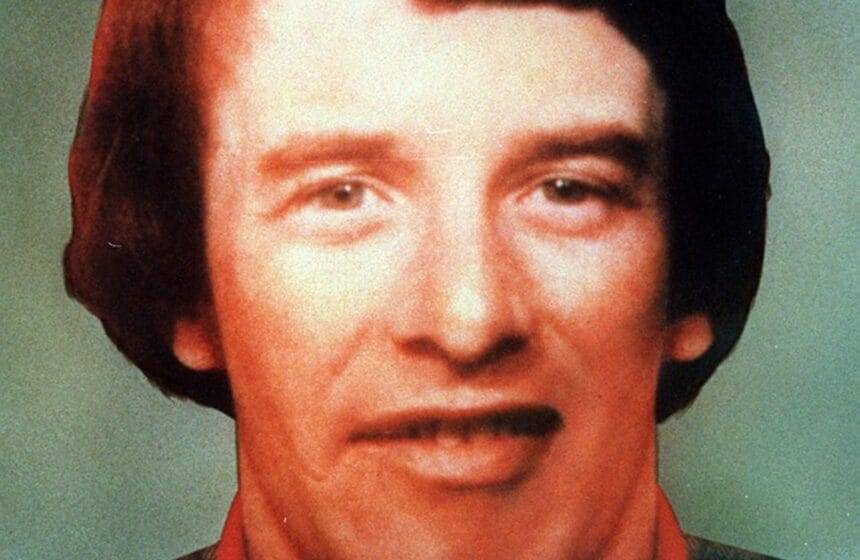Main Points In Hindi (मुख्य बातें – हिंदी में)
-
तस्करी का आरोप: पूर्व ब्रिटिश सेना एजेंट ब्रायन नेल्सन पर 1980 के दशक के अंत में बेरूत से हथियारों के तस्करी ऑपरेशन में शामिल होने का आरोप लगाया गया है, जो ब्रिटिश समर्थित हत्या अभियानों से जुड़ा है।
-
कानूनी कार्यवाही: पैट्रिक फ़्रीज़ेल और मार्गरेट लुंडी, जो हत्या के पीड़ितों के रिश्तेदार हैं, ने पुलिस (पीएसएनआई) और ब्रिटिश रक्षा मंत्रालय (एमओडी) पर मुकदमा किया है, यह आरोप लगाते हुए कि उन्होंने हथियारों की खरीद और आपूर्ति में मदद की।
-
हथियारों की लापरवाही: आरोप है कि पुलिस और MI5 को दक्षिण अफ्रीका से आयात किए गए हथियारों की जानकारी थी, लेकिन उन्होंने शिपमेंट को रोकने के लिए कोई कदम नहीं उठाया, जिससे कई हत्याएं हुईं।
-
अदालत में सुनवाई: वर्तमान में चल रहे इस पांच दिवसीय ट्रायल में कई महत्वपूर्ण सवाल उठाए गए हैं, जैसे कि हथियारों के आयात की जानकारी का मूल्यांकन कैसे किया गया और जेम्स मिशेल के खेत की खोज क्यों नहीं की गई।
- सामाजिक प्रभाव: वादी के वकीलों ने तर्क किया कि इन हत्याओं ने पीड़ितों के परिवारों की जिंदगी को अपूरणीय रूप से बदल दिया है, और यह मामला सार्वजनिक कार्यालय में दुर्व्यवहार की गंभीरता को उजागर करता है।
Main Points In English(मुख्य बातें – अंग्रेज़ी में)
Here are the main points regarding the legal case involving Brian Nelson and the allegations of arms trafficking related to a British-supported killing campaign in Northern Ireland:
-
Allegations of Arms Trafficking: Former British Army agent Brian Nelson is accused of being involved in arms trafficking operations that provided weapons to loyalist paramilitary groups in Northern Ireland during the late 1980s.
-
Legal Action by Victims’ Families: Relatives of two murder victims, Patrick Frewzel and Margaret Lundy, are suing the Police Service of Northern Ireland (PSNI) and the British Ministry of Defence for their alleged complicity in enabling the import and distribution of weapons used in the murders.
-
Past Incidents of Violence: The case references the murders of Brian Frewzel, Eileen Duffy, and Katrina Rainey by the UVF in 1991, as well as the murder of Alan Lundy by a UDA unit in 1993, asserting that the firearms linked to these attacks were strategically imported.
-
Knowledge of Authorities: It is argued that MI5 and the police were aware of plans to import hundreds of firearms, yet failed to take action against the shipments, thus facilitating the violence.
- Court Proceedings and Evidence: The ongoing trial, largely conducted in closed sessions due to national security claims, has seen lawyers for the plaintiffs argue that the state agents were aware of and complicit in the usage of these weapons in organized attacks, which profoundly affected the lives of the victims’ families.


Complete News In Hindi(पूरी खबर – हिंदी में)
एक न्यायाधीश को बताया गया कि पूर्व ब्रिटिश सेना एजेंट ब्रायन नेल्सन 1980 के दशक के अंत में बेरूत से बंदूकों के जत्थे की तस्करी के ऑपरेशन से जुड़े थे।
यह आरोप ब्रिटिश समर्थक हत्या अभियान के दो पीड़ितों के रिश्तेदारों द्वारा की गई कानूनी कार्रवाई में लगाए गए थे।
पैट्रिक फ़्रीज़ेल और मार्गरेट लुंडी दोनों वफादार समूहों को अधिकार क्षेत्र में हथियार खरीदने और भेजने में सक्षम बनाने के लिए पीएसएनआई (पूर्व में आरयूसी) पुलिस और ब्रिटिश रक्षा मंत्रालय (एमओडी) पर मुकदमा कर रहे हैं।
मार्च 1991 में मिस्टर फ़्रीज़ेल के भाई, ब्रायन फ़्रीज़ेल, 19 वर्षीय एलीन डफ़ी और 16 वर्षीय कैटरीना रेनी के साथ क्रेगवॉन, काउंटी आर्माग में संघवादी अर्धसैनिक यूवीएफ द्वारा गोली मारकर हत्या कर दी गई थी।
श्रीमती लुंडी के पति एलन लुंडी को मई 1993 में सिन फेन के प्रतिनिधि एलेक्स मास्की के पश्चिमी बेलफ़ास्ट घर में निर्माण कार्य करते समय यूडीए इकाई द्वारा गोली मार दी गई थी।
यह तर्क दिया गया कि पुलिस और एमआई5 को दक्षिण अफ्रीका के रास्ते सैकड़ों राइफलें, पिस्तौल और हथगोले आयात करने की वफादार योजनाओं के बारे में पता था, लेकिन उन्होंने शिपमेंट को रोकने के लिए कुछ नहीं किया।
1988 की शुरुआत में पुलिस ने बेलफ़ास्ट और पोर्टाडाउन में कुछ चेक VZ58-प्रकार की राइफलें, ब्राउनिंग 9 मिमी पिस्तौल, सोवियत एंटी-कार्मिक ग्रेनेड, एक रॉकेट-चालित लांचर, गोला-बारूद, पत्रिकाएँ और पाउच बरामद किए।
लेकिन यह आरोप लगाया गया है कि अन्य आयातित हथियार काउंटी अर्माघ के किसान जेम्स मिशेल द्वारा संग्रहीत किए गए थे और आरयूसी द्वारा आसन्न छापे के बारे में चेतावनी दिए जाने के बाद उन्हें सुरक्षित स्थान पर ले जाया गया था।
मिशेल, एक पूर्व पुलिस रिज़र्विस्ट जिनकी 2008 में मृत्यु हो गई थी, को 1970 के दशक के दौरान ग्लेनैन के पास उनके परिसर में पाए गए हथियारों के पिछले ढेर के लिए दोषी ठहराया गया था।
श्री फ़्रीज़ेल और श्रीमती लुंडी सार्वजनिक कार्यालय में दुर्व्यवहार और आयरलैंड में हथियारों की अनुमति देने में लापरवाही का दावा करते हुए पुलिस और रक्षा मंत्रालय पर मुकदमा कर रहे हैं।
समान आयातित बंदूकों से जुड़ी कई अन्य संघर्ष हत्याओं के संबंध में रिट दर्ज होने के साथ, उनके कार्यों को प्रमुख मामलों के रूप में पहचाना गया है।
फिलहाल पांच दिवसीय ट्रायल चल रहा है.
हालाँकि ब्रिटिश “राष्ट्रीय सुरक्षा” के संबंध में क्राउन फोर्स के दावों के कारण अधिकांश मामले की सुनवाई बंद सत्र में की जा रही है, वादी का प्रतिनिधित्व करने वाले बैरिस्टरों ने अन्य पीड़ितों के परिवारों से भरी खुली अदालत में बयान दिए।
श्रीमती लुंडी के लिए फ्रैंक ओ डोनोग्यू ने तर्क दिया: “राज्य के एजेंटों को पता था, उन्होंने इसके इस्तेमाल की अनुमति दी थी और (उनके पति) पर इस संगठित जानलेवा हमले में इस्तेमाल किए गए हथियारों में से कम से कम एक के इस्तेमाल को रोकने में विफल रहे।”
यह आरोप लगाया गया था कि उनके एजेंट ब्रायन नेल्सन (चित्रित) के लिए ब्रिटिश सैन्य सहायता टीम, जो यूडीए के खुफिया प्रमुख के रूप में काम करते थे, को पूरी जानकारी थी कि बंदूकें उत्तर में आयात की गई थीं।
अदालत को बताया गया कि नेल्सन ने हथियारों के आयात में प्रमुख भूमिका निभाई, जिनमें से एक श्री लुंडी की मृत्यु का कारण बना।
श्री ओ डोनोग्यू ने कहा, “सच्चाई यह है कि इस हथियार का उपयोग करके यह हमला हुआ, यह प्रतिवादी के प्रोटेस्टेंट अर्धसैनिक बलों के साथ मिलीभगत का परिणाम है,” और हत्या ने श्रीमती लुंडी और दंपति के पांच बच्चों के जीवन को “अपरिवर्तनीय रूप से” बदल दिया है।
पैट्रिक फ़्रीज़ेल का प्रतिनिधित्व करने वाले ब्रायन फ़ी ने बताया कि कैसे कुछ आयातित राइफलों और पिस्तौलों का इस्तेमाल वफादार अर्धसैनिकों द्वारा अन्य हत्याओं और हत्या के प्रयासों की श्रृंखला में किया गया था।
पिछली जांच से उपलब्ध आंशिक जानकारी और लॉफिनिसलैंड हत्याओं में पुलिस लोकपाल की रिपोर्ट के आधार पर, उन्होंने बंद सत्र के दौरान अदालत के लिए प्रश्नों की एक श्रृंखला निर्धारित की।
श्री फी ने इस बात पर जवाब मांगा कि हथियारों के आयात के बारे में खुफिया जानकारी कैसे प्राप्त की गई और उसका मूल्यांकन कैसे किया गया, साथ ही यह भी पूछा गया कि जेम्स मिशेल से पूछताछ क्यों नहीं की गई या उसके खेत को हथियारों की लोडिंग के लिए संभावित स्थान के रूप में जल्द ही पहचाना क्यों नहीं गया।
“खेत की तलाशी की योजना के बारे में किसे सूचित किया गया था, पहले इसकी खोज क्यों नहीं की गई, क्या किसी ने मिशेल को इच्छित खोज के बारे में सूचित किया था और यदि हां, तो किसे?” उसने पूछा.
“अगर पुलिस को पता था कि उन्होंने देश में आयात किए गए हथियारों का केवल एक हिस्सा ही बरामद किया है, तो बाकी को बरामद करने के लिए क्या कदम उठाए गए और क्या वे कदम पर्याप्त थे?”
Complete News In English(पूरी खबर – अंग्रेज़ी में)
A judge was informed that former British Army agent Brian Nelson was involved in smuggling weapons from Beirut in the late 1980s.
This claim was made in a legal action brought by relatives of two victims of a British-backed murder campaign.
Patrick Frewzel and Margaret Lundy are suing the Police Service of Northern Ireland (PSNI) and the British Ministry of Defence (MOD) for enabling loyalist groups to buy and send weapons.


In March 1991, Mr. Frewzel’s brother, Brian Frewzel, was shot dead by the loyalist UVF (Ulster Volunteer Force) alongside 19-year-old Eileen Duffy and 16-year-old Katrina Ray.
Mrs. Lundy’s husband, Alan Lundy, was shot by an UDA (Ulster Defense Association) unit while working at Sinn Féin representative Alex Maskey’s house in West Belfast in May 1993.
It is argued that the police and MI5 were aware of plans to import hundreds of rifles, pistols, and grenades through South Africa but did nothing to stop the shipments.
In early 1988, police seized some VZ58 rifles, Browning 9mm pistols, Soviet anti-personnel grenades, a rocket launcher, ammunition, and magazines in Belfast and Portadown.
However, it is alleged that other imported weapons were stored by farmer James Mitchell in County Armagh and were moved to a safe location after the RUC (Royal Ulster Constabulary) warned him of an imminent raid.
Mitchell, a former police reservist who died in 2008, was convicted for the stockpile of weapons found on his property in the 1970s.
Mr. Frewzel and Mrs. Lundy are suing the police and the MOD, claiming misconduct in public office and negligence in allowing weapons in Ireland.
Their case has been recognized as significant, with other lawsuits linked to similar imported weapons.
The trial is currently ongoing for five days.
Most of the hearings are taking place in private due to claims of “national security” by Crown forces, but barristers representing the plaintiffs have made statements in open court filled with other victims’ families.
Frank O’Donoghue, representing Mrs. Lundy, argued that state agents were aware of the situation, allowed the use of the weapons, and failed to prevent at least one weapon from being used in the organized attack that killed her husband.
It was alleged that Brian Nelson, a British military intelligence agent working with the UDA, had full knowledge that the guns were imported into Northern Ireland.
The court was told that Nelson played a significant role in the importation of weapons, one of which resulted in Mr. Lundy’s death.
O’Donoghue stated, “The truth is that the attack occurred using this weapon due to the complicity of the defendant with Protestant paramilitary forces,” impacting Mrs. Lundy and their five children’s lives “irreversibly.”
Brian Fee, representing Patrick Frewzel, described how certain imported rifles and pistols were used by loyalist paramilitaries in a series of other murders and assassination attempts.
Based on partial information from prior investigations and the police oversight report on the Loughinisland murders, he posed a series of questions to the court during the closed session.
Fee inquired about how intelligence regarding the arms imports was obtained and assessed, why James Mitchell wasn’t questioned or recognized earlier as a possible weapons storage location, and who was informed about the search plans.
He asked why the search wasn’t conducted sooner, if Mitchell was alerted to the intended search, and if so, by whom.
He also questioned whether the police knew they had only recovered a portion of the imported weapons and what measures were taken to recover the rest, as well as whether those measures were adequate.
Source link








